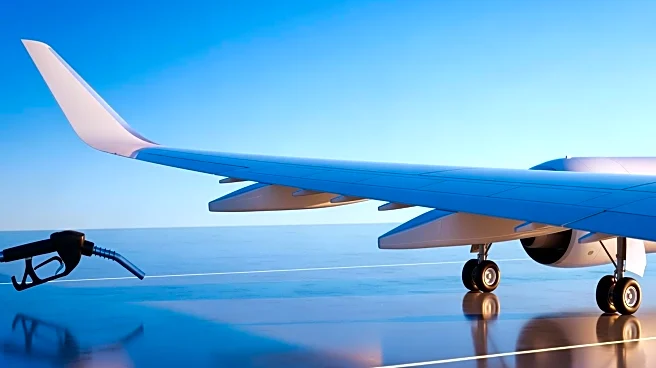What's Happening?
Gas prices have recently fallen below $3 per gallon, prompting discussions about the potential impact on airfares. Linsey Davis from ABC News interviewed Clint Henderson, managing editor of 'The Points Guy,' to explore how long these lower gas prices might
persist and the optimal timing for purchasing holiday airfares. The drop in gas prices is a significant development, as fuel costs are a major component of airline expenses. This decrease could lead to reduced operational costs for airlines, potentially influencing ticket prices. However, the relationship between gas prices and airfares is complex, and other factors such as demand and airline pricing strategies also play crucial roles.
Why It's Important?
The decline in gas prices is significant for both consumers and the airline industry. Lower fuel costs can lead to reduced expenses for airlines, which might translate into lower airfares for travelers. This is particularly relevant as the holiday season approaches, a time when many Americans plan to travel. If airlines pass on the savings from lower fuel costs to consumers, it could make air travel more affordable, boosting travel demand and benefiting the tourism sector. However, the extent to which airfares will be affected depends on various factors, including airline pricing strategies and overall travel demand.
What's Next?
As the holiday season nears, travelers are advised to monitor airfare prices closely. Airlines may adjust their pricing based on fuel cost trends and demand forecasts. Consumers looking to capitalize on potential airfare reductions should consider booking their flights during periods identified as optimal by travel experts. Additionally, industry stakeholders will be watching fuel price trends to assess their impact on operational costs and pricing strategies. The situation remains dynamic, and travelers should stay informed about market conditions to make cost-effective travel decisions.
Beyond the Headlines
The drop in gas prices could have broader implications beyond airfares. Lower fuel costs can reduce transportation expenses across various sectors, potentially leading to lower prices for goods and services. This could provide relief to consumers facing inflationary pressures. Additionally, the situation highlights the volatility of fuel prices and the importance of energy market stability for economic planning. Stakeholders may need to consider long-term strategies to mitigate the impact of fluctuating fuel costs on business operations and consumer prices.














